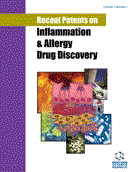Abstract
Adenotonsillar disease (adenoiditis and recurrent tonsillitis) is a prevalent otolaryngologic disorder aetiologically based on chronic inflammation triggered by a persistent bacterial infection. These bacteria, mostly Staphylococcus aureus, Haemophilus sp., and Streptococcus sp., persist predominantly intracellular and within mucosal biofilms. The recurrent or chronic inflammation of the adenoids and faucial tonsils leads to chronic activation of the cell-mediated and humoral immune response, resulting in hypertrophy of the lymphoid tonsillar tissue. This hypertrophic tissue is the cause for the prominent clinical symptoms: obstruction of the upper airways, snoring, and sleep apnea for adenoiditis or sore throat, dysphagia and halitosis for recurrent tonsillitis. Treatment strategies should target the persisting bacteria within their biofilm or intracellular shelter. Macrolide antibiotics like clarithromycin are able to modulate the immune system and to interfere in bacterial signaling within biofilms. Clindamycin, quinupristin-dalfopristin, and oritavancin are intracellular high active compounds. Surgical removal of the hypertrophic tissue by modern procedures like laser tonsil ablation, eliminates not only a mechanical obstacle of the airways, it removes also the basis for the aetiologic cause, the “biofilm carrier”. This review summarizes the role of bacterial persistence in mucosal biofilms for the aetiology, diagnosis and treatment of adenotonsillar disease and relevant patents.
Keywords: Adenoiditis, mucosal biofilm, recurrent tonsillitis, Staphylococcus aureus
 30
30


















